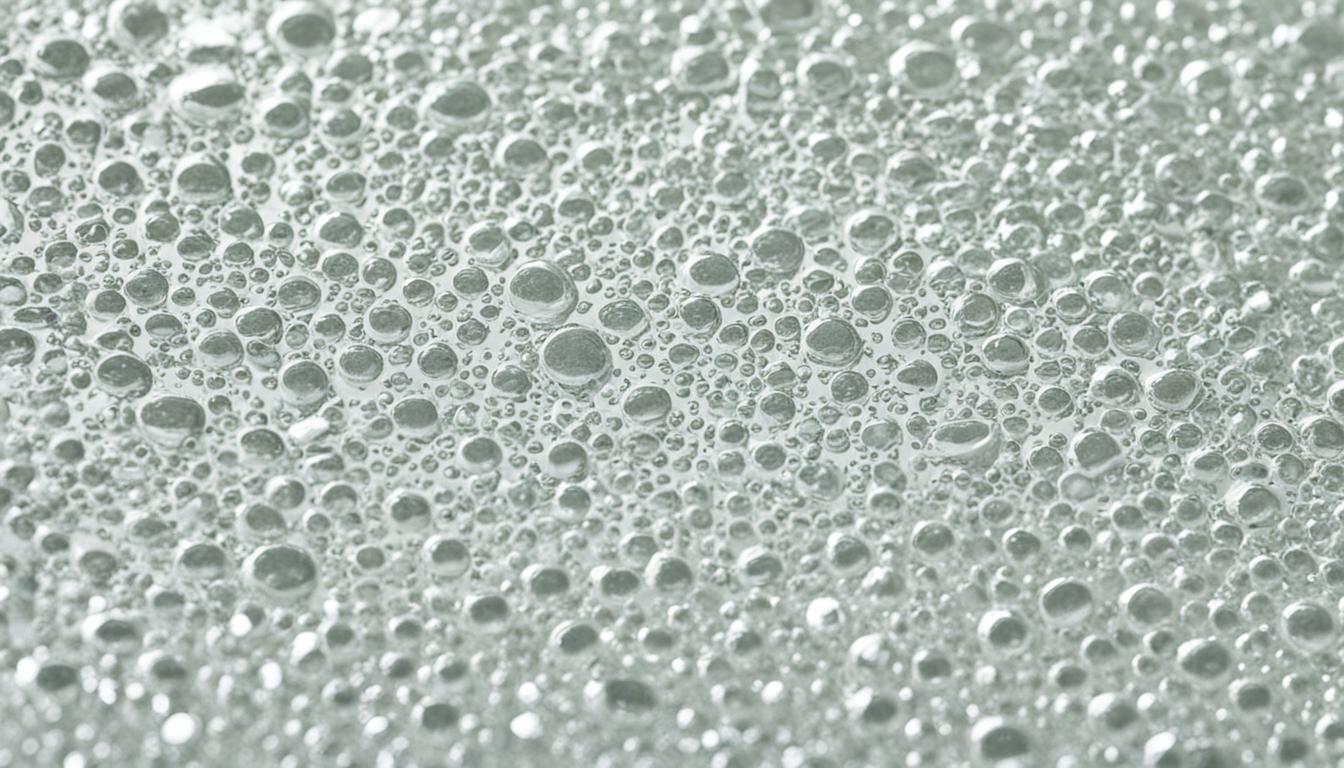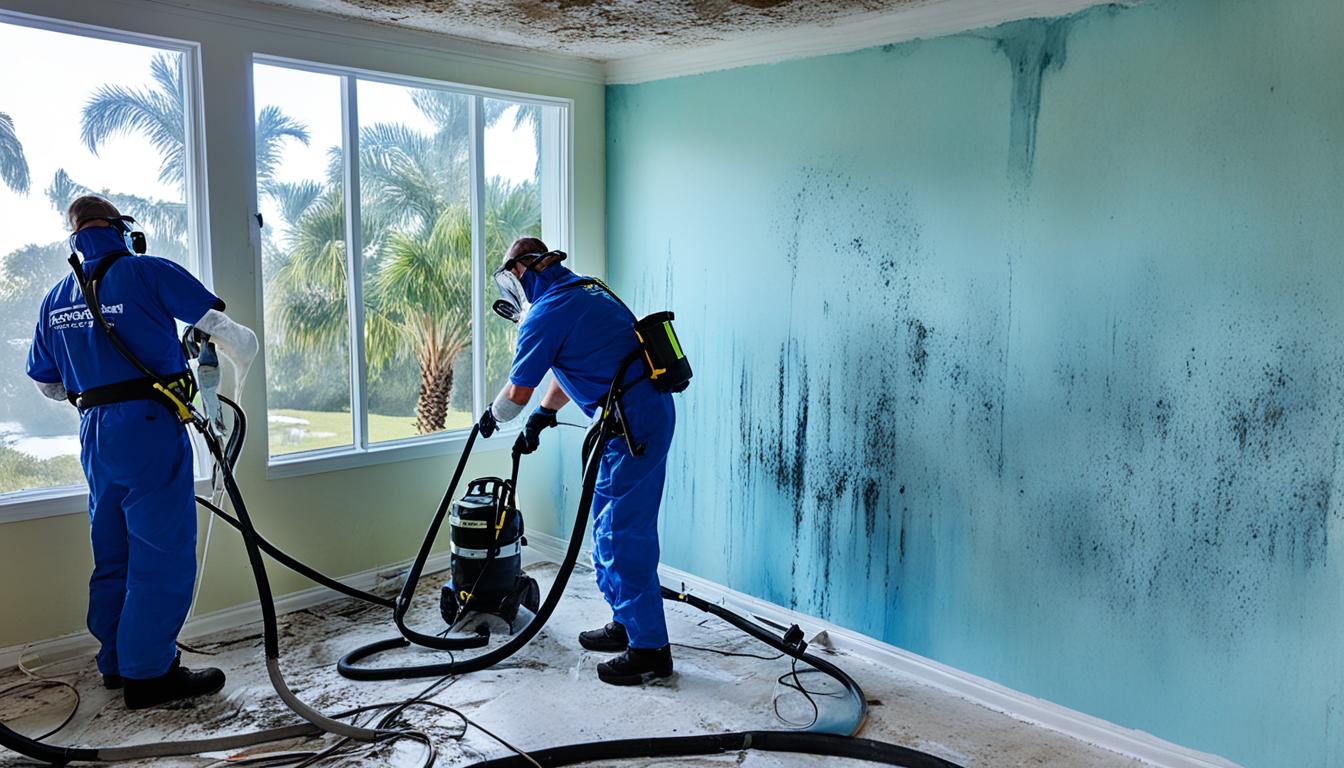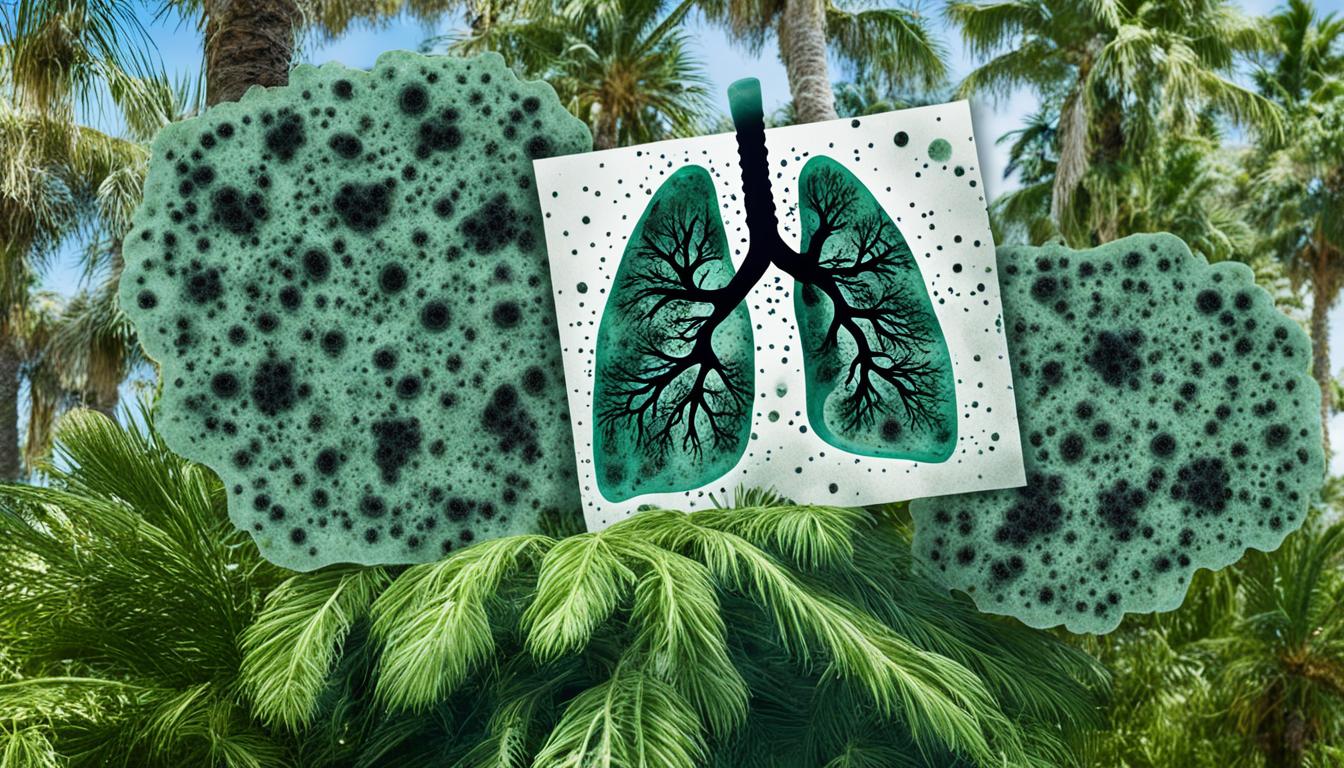
Mold in Lungs Florida: Risks & Prevention Tips
Living in Florida comes with many advantages, such as beautiful beaches and a sunny climate. However, it also presents unique challenges, one of which is the increased risk of mold in lungs. Mold growth in your home or workplace can have severe health consequences and negatively impact indoor air quality. In this article, we will explore the health risks associated with mold in lungs in Florida and provide crucial prevention tips to safeguard your respiratory health and maintain a mold-free environment.
Key Takeaways:
- Mold in lungs Florida can lead to significant health risks and affect indoor air quality.
- Exposure to mold spores can trigger respiratory issues and allergy symptoms.
- Mold in the lungs can have a detrimental impact on the immune system’s response.
- Prevention measures, such as moisture control and proper ventilation, are crucial in avoiding mold growth.
- Regular inspections and professional mold assessments are essential for maintaining a mold-free environment.
Understanding the Health Risks Associated with Mold in Lungs
Mold in the lungs can have serious health consequences. When mold spores are inhaled, they can lead to a range of respiratory issues, trigger allergy symptoms, and affect the immune system’s response. It is crucial to understand these risks in order to take appropriate preventive measures and protect your health.
Mold spores are microscopic particles released by mold growth. When these spores enter the respiratory system, they can cause irritation and inflammation in the airways, leading to respiratory issues such as coughing, wheezing, and shortness of breath. Individuals with pre-existing respiratory conditions, such as asthma or chronic obstructive pulmonary disease (COPD), may experience exacerbation of their symptoms.
Allergy symptoms can also be triggered by exposure to mold spores. These symptoms include sneezing, nasal congestion, itchy or watery eyes, and skin irritation. People with allergies to mold may experience more pronounced symptoms when exposed to mold in their lungs.
Furthermore, mold spores have the potential to affect the immune system’s response. When the body detects the presence of mold spores, the immune system reacts by releasing chemicals that cause inflammation. Prolonged or repeated exposure to mold spores can result in chronic inflammation, which may weaken the immune system over time.
“Exposure to mold spores can lead to respiratory issues, trigger allergy symptoms, and impact the immune system’s response.”
It is important to note that individuals may respond differently to mold exposure, with some being more susceptible to its effects than others. Factors such as the concentration and duration of exposure, as well as the individual’s overall health, can influence the severity of symptoms.
By understanding the potential health risks associated with mold in the lungs, individuals can take proactive measures to prevent exposure and protect their respiratory health. This includes addressing any moisture issues in the home or workplace, improving ventilation, and promptly addressing any signs of mold growth.
Takeaways:
- Mold in the lungs can lead to various respiratory issues and trigger allergy symptoms.
- Exposure to mold spores can impact the immune system’s response, potentially weakening it over time.
- Individuals may react differently to mold exposure, and factors such as concentration and duration of exposure can influence symptoms.
- Preventive measures, such as addressing moisture issues and improving ventilation, can help mitigate the health risks associated with mold in the lungs.
To further illustrate the potential health risks associated with mold in the lungs, refer to the table below:
| Health Risks | Symptoms |
|---|---|
| Respiratory issues | Coughing, wheezing, shortness of breath |
| Allergy symptoms | Sneezing, nasal congestion, itchy or watery eyes, skin irritation |
| Immune system impact | Chronic inflammation, weakened immune response |
Understanding these health risks is crucial for individuals residing in Florida, where mold growth is a common concern. By taking preventive measures and minimizing exposure to mold spores, you can protect your respiratory health and maintain a safe indoor environment.
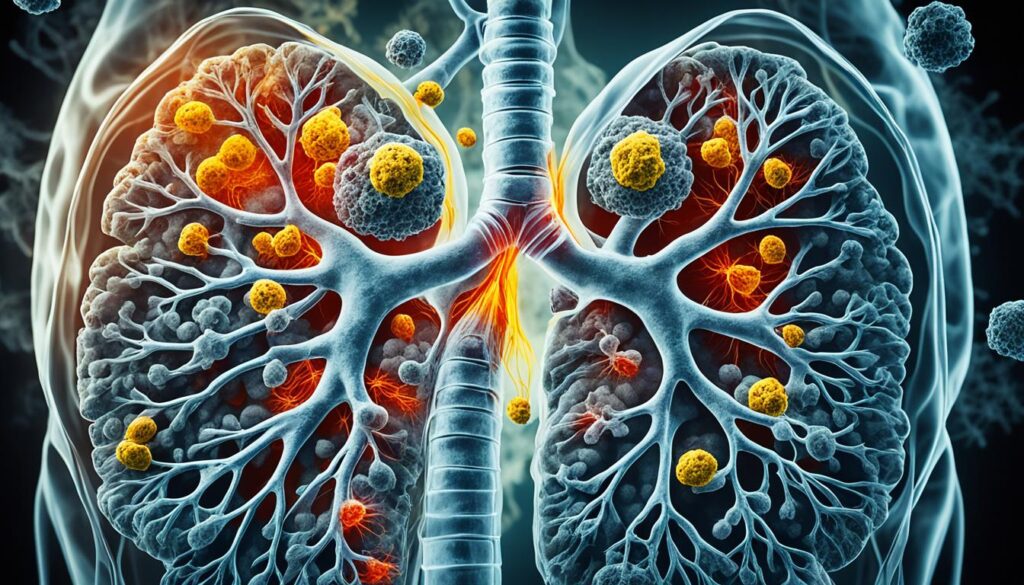
Prevention Tips to Safeguard Your Indoor Air Quality
Ensuring a healthy indoor environment requires proactive measures to prevent mold growth and maintain optimal air quality. By following these prevention tips, you can safeguard your indoor air quality and minimize the risk of mold-related health issues.
1. Control Moisture Levels
Moisture is the primary culprit behind mold growth. To prevent mold from taking hold in your home or workplace, it’s crucial to regulate moisture levels. Here’s how:
- Repair any leaks or water damage promptly.
- Use dehumidifiers in damp areas, such as basements and bathrooms.
- Avoid overwatering indoor plants.
- Ensure proper drainage around the foundation of your building.
2. Enhance Ventilation
Proper ventilation helps maintain a dry and well-circulated environment, making it less favorable for mold growth. Implement the following ventilation strategies:
- Open windows and use exhaust fans while cooking, showering, or using the dishwasher.
- Clean and maintain ventilation systems, including air ducts and filters, regularly.
- Ensure adequate airflow by removing any obstructions around vents and air registers.
3. Regular Inspections
Regular inspections are essential for identifying and addressing potential mold issues before they escalate. Here’s what you should do:
- Inspect your home or workplace for any signs of water damage, such as stains or discoloration on walls, ceilings, or floors.
- Check for musty odors, which can indicate hidden mold growth.
- Inspect plumbing fixtures, pipes, and appliances for leaks.
- Ensure proper ventilation in areas prone to moisture, such as attics and crawl spaces.
4. Seek Professional Mold Assessment
While prevention tips can help mitigate mold growth, it’s advisable to seek a professional mold assessment to ensure comprehensive evaluation and early detection. A professional assessment will:
- Identify hidden mold growth that may not be visible to the naked eye.
- Provide expert advice on effective remediation methods.
- Offer guidance on improving indoor air quality based on the assessment results.
By implementing these prevention tips and staying proactive in maintaining a mold-free environment, you can safeguard your indoor air quality and promote a healthier living or working space.
“Prevention is the best defense when it comes to mold growth. By controlling moisture, enhancing ventilation, conducting regular inspections, and seeking professional assessments, you can protect your indoor air quality and prevent the harmful effects of mold.” – [Author Name]
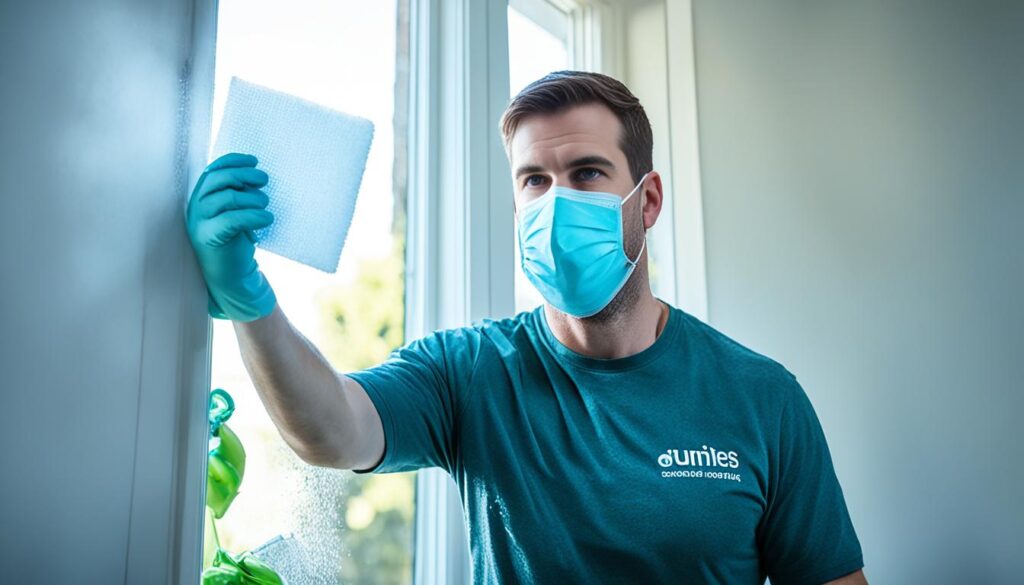
Conclusion
Being aware of the health risks associated with mold in the lungs is vital for residents of Florida. Mold spores can lead to various respiratory issues, trigger allergy symptoms, and impact the immune system’s response. By implementing the prevention tips discussed in this article, you can significantly reduce the chances of mold growth and protect your indoor air quality.
To safeguard your respiratory health, it is important to prioritize moisture control and proper ventilation. Regular inspections and seeking professional mold assessments can help detect and address mold growth early on. Remember, prevention is key when it comes to maintaining a mold-free environment.
If you suspect mold in your living or working environment, don’t hesitate to contact Fix Mold Miami at 305-465-6653. Their team of experts can provide professional mold assessments and remediation services. Take proactive steps to protect yourself and your loved ones from the harmful effects of mold in the lungs.


